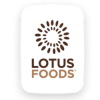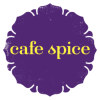As The Vita Coco Company went public last month, the maker of coconut water and other healthier beverages said all the right words to pique investors' interest. It's consistently profitable, company leaders said, growing and positioned in a trendy category.
"As we continue to perform and overperform, I think over time, investors will see that this is a stock that really represents the future of consumers as it relates to beverages," Mike Kirban, Vita Coco's co-CEO, said on the day of his company's IPO. "I've been building this for 17 years; I really look forward to building it for a lot longer into the future. I don't care what any specific day looks like."
But instead of climbing in the days after its debut, the company fell victim to the same downward drop in its stock price that has pressured more than a dozen other businesses that have gone public through a conventional IPO or a merger with a special purpose acquisition company, or SPAC. Vita Coco, which priced its IPO at $15 each, below the previously expected range of $18 to $21, has dropped 10% following its listing just two weeks ago.
A review of 13 companies that have gone public since July 31, 2020, through a traditional IPO or a merger with a SPAC show all but one of the listings are trading below where they first came to market.
In the case of IPOs, seven of the eight companies are below where their shares were first priced. This includes Swedish oat milk titan Oatly and pasture-raised egg producer Vital Farms, whose stocks are both down about 25%.
Each of the five SPAC deals have declined. Indoor greenhouse operator AppHarvest has plunged 76% from the day it closed its SPAC merger. Biltong maker Stryve, which recently announced the departure of its co-CEO, and crop genomics platform developer Benson Hill have lost about 40% of their value.
Newly public food and beverage companies have seen their stock prices wither
“The fact that they [have] fallen below their IPO price doesn't mean that they're bad companies. It just means that they were overpriced companies," said Erik Gordon, a business professor at the University of Michigan, speaking of food and beverage listings as a whole. "And the fact that they're overpriced companies is not related to them being food companies, it's related to when they went public. They went public during a frothy market.”
There are a host of reasons why these and other companies have drifted lower. Some investors may want to take advantage of the pop following the IPO to cash out and pocket their gains. Others may fear the market, trading at a record high, is due for a correction, prompting them to pull their money and reinvest it in other areas like bitcoin, gold or real estate. Other traders may fear growth projections for these companies are too optimistic and don't support such a pricey valuation.
Only one company appears to have bucked the slide to see its share price rise after its public debut. Noosa yogurt-maker Sovos Brands has climbed 35% since it went public at $12 a share. It also priced below its expected range of $14 to $16. Sovos, which acquires disruptive brands specializing in premium offerings, turned a profit in its most recent fiscal year. It is the fastest-growing food company of scale in the U.S.
The U.S. IPO market has been active in 2021, and food and beverages have been no exception. Traditional U.S.-listed IPOs, excluding SPACs, have been valued through Oct. 27 at $261 billion, according to data provided by Dealogic that goes back to 1995. The total easily surpasses other full years tabulated by the firm. In food and beverages, the deals have been valued at more than $3 billion, the second highest on record during the same period.
Brian Choi, CEO of The Food Institute, a food industry media and market research company, said food and beverage IPOs, particularly in vertical farming and alternative milk, have been priced with "high growth expectations." He said these and other IPOs or SPACs are valued more richly by investors than they have been in the past.
"Investors, whether in these high-flying names, whether it's in the IPOs or the SPACs, are starting to question the viability of the underlying companies’ growth expectations and valuations," Choi said. "That’s why we’ve seen less than stellar year-to-date performance in these names."

The dismal showings, however, are unlikely to deter other companies who are planning to go public in the space from postponing their own IPOs, industry watchers say.
Red-hot equity markets and investors eager to find ways to put cash to work amid low interest rates continue to view these offerings as an enticing channel. Even with equity valuations being high, there are few alternatives where investors can turn for a meaningful return.
Companies that go public want to strike while markets are enticing rather than wait for when conditions could be less attractive, cutting into the amount of money they collect in an IPO or SPAC deal.
The food space is gearing up for arguably the two biggest companies to go public since Beyond Meat listed its shares in May 2019. The California company, the first plant-based food manufacturer to go public on a major exchange, has been a huge success despite a recent pullback in its shares, with its stock surging 300% since its IPO.
Fellow plant-based meat company Impossible Foods is reportedly preparing to go public in the next year. Last week, Bloomberg said Impossible was in talks to raise about $500 million in funding that would value the company at approximately $7 billion. Greek yogurt pioneer Chobani filed a confidential registration statement with the Securities and Exchange Commission for a potential IPO in July. The Wall Street Journal said at the time it was looking at potential valuations of $7 billion to $10 billion.
Choi, a former Wall Street investment banker and private equity investor, noted that "huge interest" remains from investors in alternative milks and meats, which could prompt companies to use that as a springboard to go public.
"I don’t blame these companies for wanting to go public. If I can start a SPAC right now and get valued at some of the multiples we’ve seen, why wouldn't I? I’d just be taking advantage of the current equity market conditions," Choi said. "As market conditions 'normalize,' deal activity and valuations in IPOs and SPACs will likely decline, but it’s difficult to predict when."





















